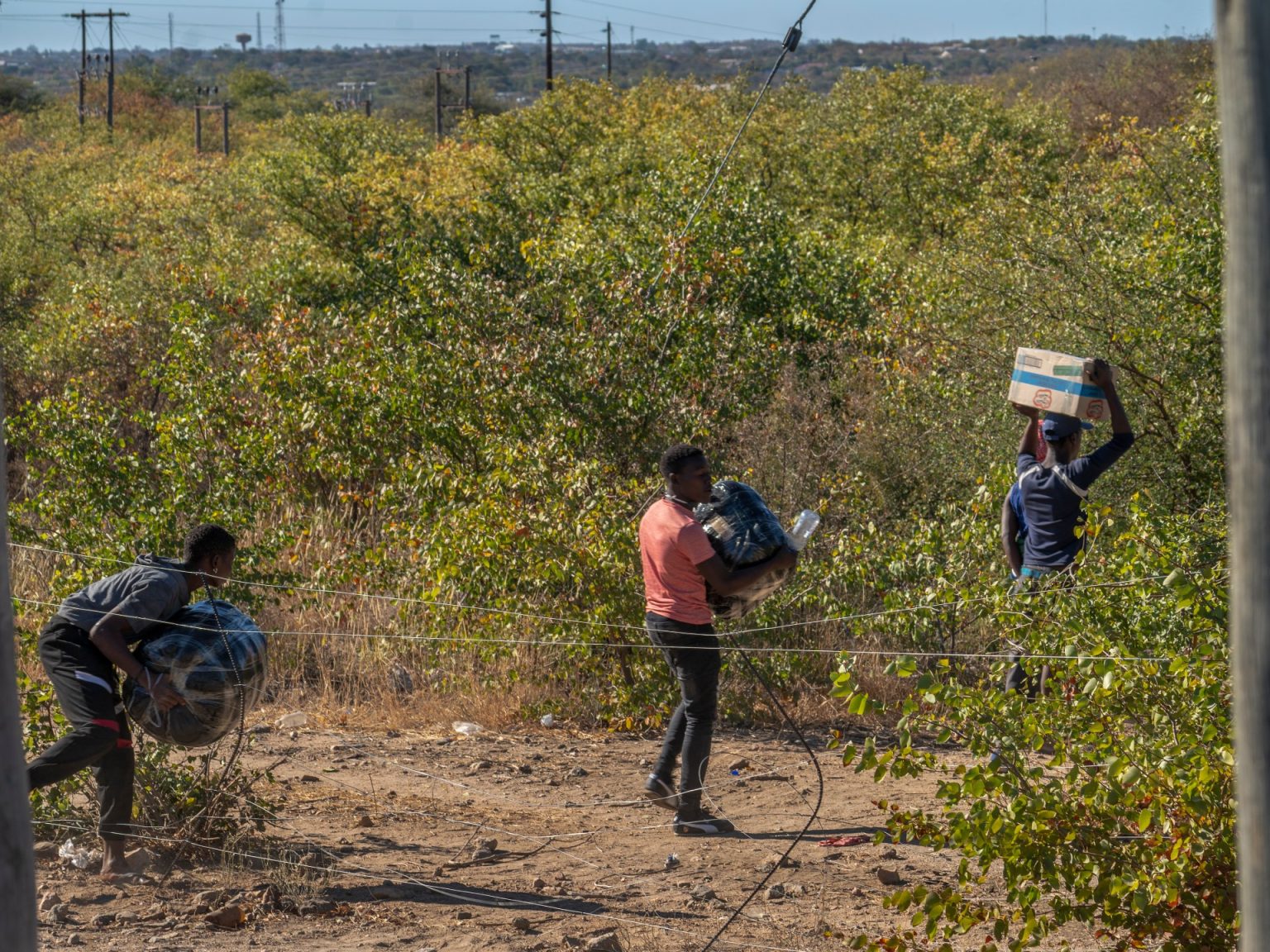Thulani Ncube, a cross-border driver known as “oMalaicha” in Zimbabwe, makes deliveries to villagers in Matabeleland South province from South Africa, smuggling goods to avoid extra charges. Many Zimbabweans have fled to South Africa due to political crisis and economic challenges, with over a million Zimbabweans living there. Ncube also smuggles people into South Africa, charging a cattle or $300-$400 per person. However, with the upcoming general election in South Africa, Ncube is concerned about the potential impact on his business and plans to continue his work underground if necessary.
In Gohole village, village head Courage Moyo watches South Africa’s election developments closely as many Zimbabweans rely on relatives in South Africa for support. A local WhatsApp group discusses the elections with some members considering rethinking their immigration plans depending on the election outcome. The close ties between Matabeleland South and South Africa are reflected in the province’s preference for the South African rand over the local currency. The potential changes in South Africa’s immigration policy are a key concern for many Zimbabweans both in South Africa and back home.
During a televised panel discussion on immigration, representatives from various political parties in South Africa discussed the issue of irregular and illegal migration. The governing ANC proposed overhauling the immigration system to address job issues among locals, while other parties expressed concerns about the impact of foreign nationals on employment opportunities for South Africans. The discussion highlighted the complexity of the immigration issue in South Africa and the varying perspectives among political parties.
Zimbabwean Exemption Permit (ZEP) holders in South Africa face uncertainty as the special dispensation provided by the government faces challenges. The permit allows ZEP holders to work, seek employment, and conduct business in South Africa, but it is not renewable, and holders cannot apply for permanent residence. Various political parties have different views on the ZEP, with some supporting its extension and others advocating for its closure. The outcome of the South African election could dictate the fate of ZEP holders and their status in the country.
As South African politicians debate immigration policies, Zimbabwe’s government has implemented measures to discourage emigration, including high passport fees that are unaffordable for many Zimbabweans. Despite the risks of crossing the border illegally, including through the Limpopo River, many Zimbabweans continue to seek opportunities in South Africa. Ncube, along with other Malaicha, facilitates the smuggling of people across the border, with some opting for the dangerous route of “border jumping.” The potential tightening of South Africa’s immigration policy post-election may force Ncube to smuggle people via the Limpopo River, despite the risks involved.
The interconnectedness between Zimbabwe and South Africa remains strong, with many Zimbabweans depending on remittances and support from relatives in South Africa. The outcome of South Africa’s election, particularly in relation to immigration policies, will have a significant impact on Zimbabweans living in South Africa and those seeking opportunities across the border. As debates continue on the immigration issue, Zimbabweans navigate the challenges of irregular migration and the risks associated with crossing the border illegally.













